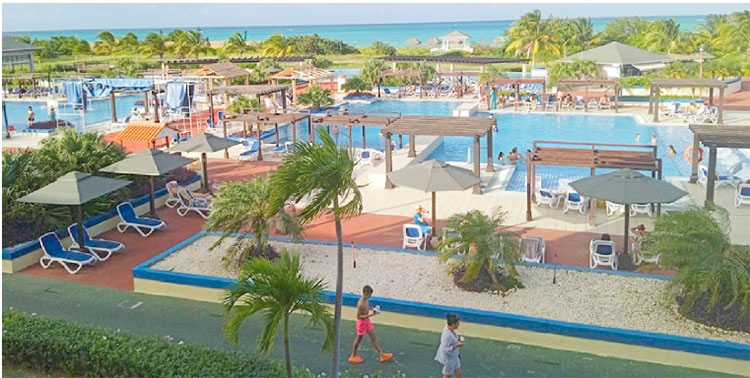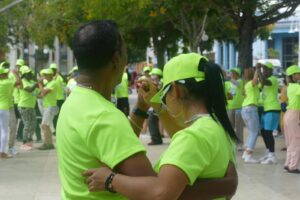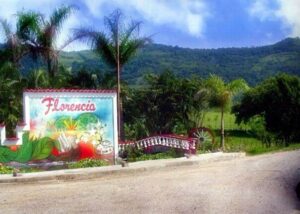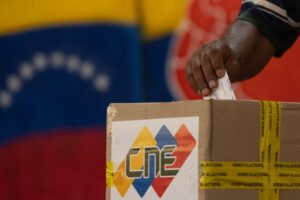By Juanita Perdomo, Lianne Fonseca and José Luis Martínez Alejo
With a bet for the best, Cuba welcomes the winter season, the period from November to April, when the country receives the largest flows of foreign visitors, and also its main income from the export of these services.
In spite of the enthusiasm for their arrival, the important period takes place in a context of marked restrictions. A favorite victim of the U.S. blockade, after the foreign sector, tourism is the most affected by measures that take away vacationers.
Tourism must deal with these and other demons to recover numbers similar to those of 2019, before the pandemic, to offer a competitive destination and make the most of this stage.
Interested in knowing how the winter season behaves, we traveled to destinations in Holguin, Ciego de Avila and Matanzas.
The news began in the eastern territory of Holguín. If what was announced comes true, there will be an increase in the number of rooms with the coming into operation of two hotels, one in El Ramón de Antilla and the other one in Yuraguanal beach, both enclaves under development.
As the venue of the FitCuba 2024 International Tourism Fair, Ciego de Avila is updating its products, some of which will gradually become available to clients, promises Iyolexis Correa Lorenzo, delegate of the Ministry of Tourism (Mintur). For example, Pullman Cayo Coco celebrated its eighth birthday, last December 18, with a more attractive look. Eilén Buchillón Cepero, deputy commercial director, lists changes in progress for the entire infrastructure of the 566-room hotel.
More comfort, renovated image and more extra-hotel options in Varadero’s nights distinguish a stage that reinforces with four health posts the already safe medical attention in the resort, with specialized services in the International Clinic, summarized Nastia Valdés, delegate of the Mintur in Matanzas.
Capitalizing tourism from aviation
With Sunwing Airlines and Air Transat playing a leading role, some 74 weekly operations are announced for the Frank País International Airport, higher than 2019, a destination where the occupancy of the planes of these Canadian companies is estimated at 87%, a very encouraging figure in arrivals, according to Carlos Álvarez, commercial specialist of the Mintur delegation in Holguín.
Ciego de Avila also expects an increase in flights from Russia and Canada, as well as in the Juan Gualberto Gomez Airport, the second most important terminal in the country.
The resumption of international operations at the Sierra Maestra aerodrome in Granma and the Jaime González aerodrome in Cienfuegos, reflecting the determination to create conditions for the arrival of travelers wherever that possibility exists, says Joel Beltrán Archer Santos, president of the Corporación de la Aviación Cubana S.A. (Cacsa).
So far, the airlines that have been arriving have exceeded expectations, perhaps not in the number of flights, but in the total number of flights, and that is related to what we are doing, he said. «The purpose is to consolidate what we have.»
Archer mentioned improvements in the airfields, some of greater magnitude than others, but all with the purpose of optimizing the infrastructure, conditions and equipment that guarantee high service performance.
The president of Cacsa acknowledged that, despite the shortcomings to be solved, there is a process aimed at capitalizing the tourism product from the aviation side.
The productive chain as an alternative
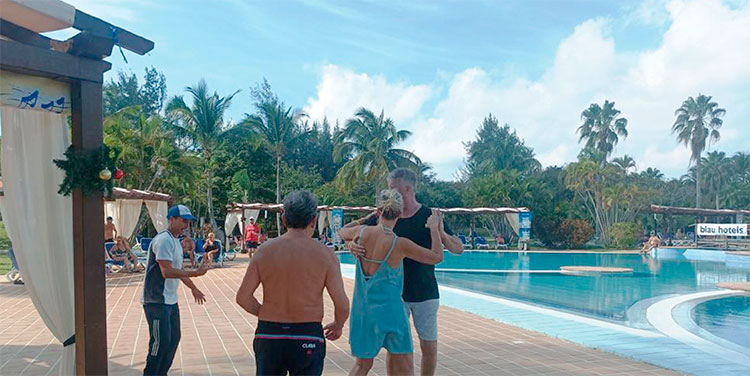
Dependent on many little ones for its success, the winter season has today a critical point in the supplies. In hotels, the season of full warehouses is over. As in everyday life, eggs are as scarce as sugar.
In each province, the issue is taken care of with the highest priority. Llildrey Torres Hernandez, head of commercialization of Matanzas Agriculture, assures that Tuesday by Tuesday, in a meeting with the Mintur, they check the fulfillment of the demands of a big consumer like Varadero, number one client’s receiver in Cuba.
Any supply scheme depends on fuel. «The preparation of the state entities and the network of private producers for the stage, allows us to be in good conditions today».
However, among other items, «it is not possible to satisfy requests for citrus fruits or the high levels of banana fruit, usually purchased from the company La Cuba; Labiofam will not make yogurt for lack of raw material», regrets Torres.
From the Holguin delegation of Mintur, Carlos Alvarez says that «if we look at the behavior of what should be offered according to the categories of the facilities, the deficit is noticeable».
In view of the difficult panorama, hoteliers are no longer waiting for what falls on their plates, and are turning to private forms, including new economic actors, thanks to the options of the productive chain.
«For us it is a saving measure», says Rolando Valencia, director of Brisas del Caribe, Cubanacan’s hotel in Varadero, managed as its own brand, without the advantage of importing from a joint venture.
Fruits, pigs and lambs are supplied by independent producers, and two credit and service cooperatives are in charge of fish. «For any eventual problem, we have three local farmers. The one we called today is already on the platform.»
Raúl Aragón has just parked the truck full of fruits, groceries and vegetables. More than seven years ago he opted for direct sales to tourists. The hotel does not fail him in payments. «When they ask me for something, if I don’t have it, I look for it wherever I can. I have the same sense of belonging as the people here. I feel like just another worker.
Yumurinos are no exception. In the municipality of Rafael Freyre, in Holguín, the breads, instead of being made by Servisa, are made by MSMEs, and in Avileña they work with the Local Development Projects, allies to stimulate food production and their presence in specialized restaurants and buffet tables.
An adversary in the purchase management are the very high prices, infatuated with shooting invoices, costs, budgets. It is a chess game of accurate moves to avoid losing efficiency.
At Starfish Varadero, they opted to plant 60 Persian lemon bushes, a citrus fruit with a golden value, when it appears. «Soon we will harvest the first ones,» announces Mario Wilmer Duarte Novoa. «Those that are there are mango, the Russians love them. In a year there will be a harvest. There will be many benefits.
Any alternative is valid in the face of the supply problems. Nothing, however, justifies a bad menu, agree interviewees. The variety may be questioned, but not the quality of the food, perhaps the worst perceived variable in the surveys of those who choose Cuba as a vacation destination.
When there are shortages, it is necessary to optimize products to the maximum, to multiply them, and that is only possible with knowledge, techniques and wisdom, says Eddy Fernández Monte, president of the Culinary Federation of Cuba. «We have to work hard with young people, especially to alleviate the exodus of skilled labor force and its impact on a key area such as this.
Joel García, head chef at Paradisus Varadero, part of the Gaviota group, agrees with Fernández. «The greatness of the chef is in doing things with what he has at hand. Innovate, create, that’s what he does. The important thing is to please the client, to try to make real what he dreamed of when he chose us. That’s how he wins, we win, and the country’s economy wins».
The high season is not safe with Transmetro
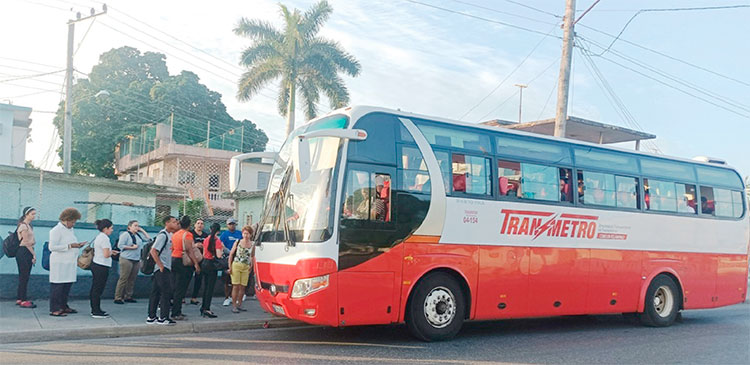
If supplies are a problem during the winter season, nothing compares to the complaints about Transmetro, which is unable to meet the transportation needs of the labor force.
Fabio González Valdés, a gastronomic clerk at Meliá Cayo Coco, worries about the loss of quality due to transportation problems in a province with long distances to travel. «As exhausted as I am, it’s not easy to get back and forth on my feet».
Carmen María Zaldívar Hidalgo, from Holguín, feels the same way. «In the same bus rides the personnel of two shifts, a danger for the crew and for us,» warns the worker of Brisas Guardalavaca.
In the eastern territory, travel information is transmitted through groups formed on the WhatsApp platform. Sometimes at two or three in the morning it is still not known whether or not there will be a bus, warns Angel Esposito, secretary general of the Provincial Union of Hotel and Tourism Workers in Holguin. «Many travel in whatever happens, making bottle; it is a total uncertainty.»
In Varadero, the largest in labor population, transportation is in chaos, says in a tone of annoyance Maylén Alemañy, top representative of the Tourism Union in Matanzas province. «And that hurts a lot because despite enormous efforts, analysis and checks, no progress is being made.» «Please don’t put my name,» cries a sales clerk at the Iberostar Bella Costa. «Yesterday I arrived almost four hours after my check-in time. I affected the one waiting for me, who has to work longer hours, and they don’t get paid. This is hard,» the matancera complains.
Julio Enrique Morales Verea, general secretary of the National Union of Hotel and Tourism Workers (SNTHT), reiterates the difficult situation with energy carriers, an objective cause of weight at the time of evaluating the transport issue, he insists. However, «we perceive organizational problems that worsen the current situation».
According to Morales Verea, in addition to the complaints about transportation, the employees are dealing with the shortage of supplies, due to the lack of financing, in a situation, he warns, in which resources, raw materials and the fight against crimes and illegalities must also be taken care of.
He added that this important season is received without solving irregularities associated with labor income. «There are dissatisfactions with the application of payment systems and some other regulations poorly implemented by administrations».
A recurrent example is the Royalton Hicacos, probably the most awarded mixed hotel in Cuba, which is still waiting for a well-deserved award: the economic benefits resulting from the wealth it created.
Alexis Veloso, secretary general of the SNTHT Provincial Bureau in Ciego de Avila, adds concerns related to uniforms, means of protection and material responsibility, an old unresolved issue, aggravated by the increase in prices.
Although there are situations to be solved, Morales highlights the workers’ commitment to the tourist season, the fulfillment of the plans and the income from the export of services.
«We also have the conviction that the organic process of our Third National Conference will strengthen the union base structures, and will turn the assembly of affiliates and workers into a space for debates on economic management, savings, quality, design of new products and how to stop the labor exodus.»
The internal customer is the most important
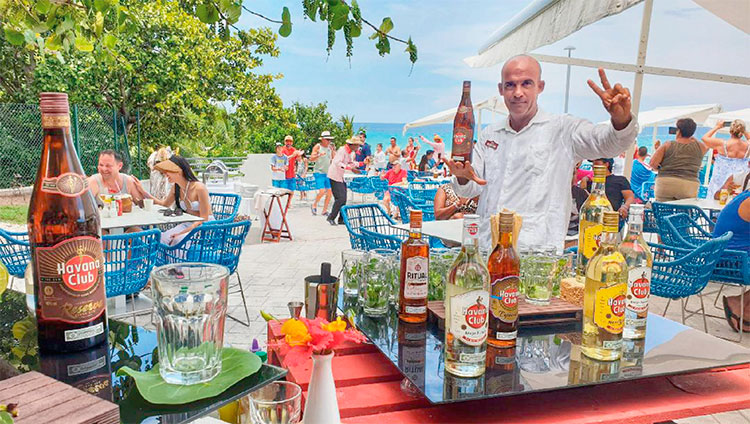
The key to success in Pullman Cayo Coco’s operations are the workers, just like at the Gran Muthu Almirante Beach, the hotel with the highest occupancy among Cubanacán’s hotels in Holguín, where Sergio Miguel Figueredo López, in charge of social networks, floods Facebook with faces of sales clerks, bartenders, waitresses and cooks, a very motivating detail.
Laura Tandrón thinks that all initiatives are not enough to reward the daily dedication of Blau Varadero’s employees. For the assistant general manager, internal customers are the most valuable. «Their resilience is admirable. That’s why we must always make sure they feel that we are there for them,» says Spaniard Pau Coll, general manager of the charming facility.
From Sol Palmeras, loyal to Fidel’s request to maintain the same quality of 33 years ago when he inaugurated it, the voice of union leader Arnaldo Díaz Hiedra can be heard: «The fifth star of a hotel is given by the workers. Let no one forget it».

